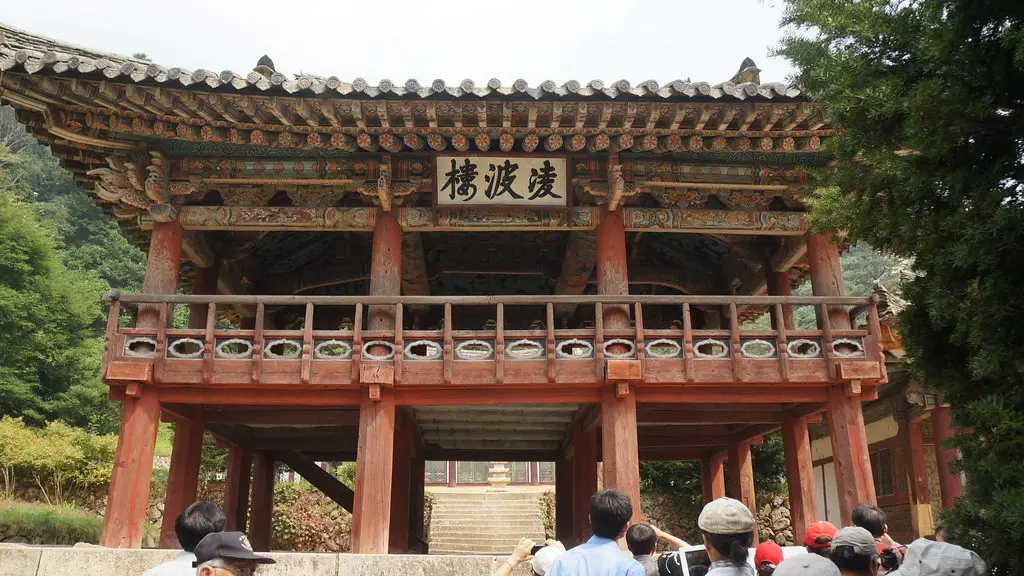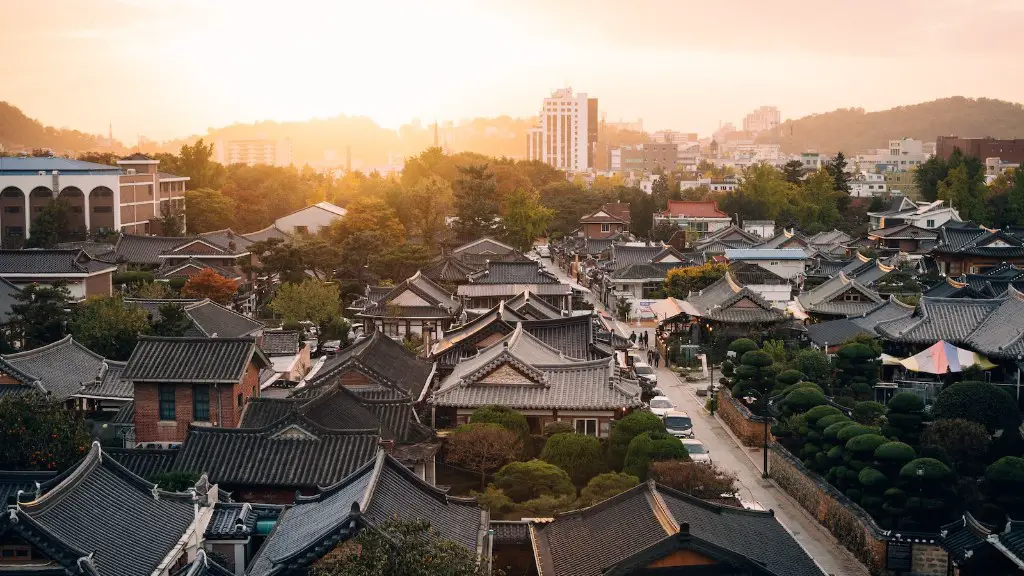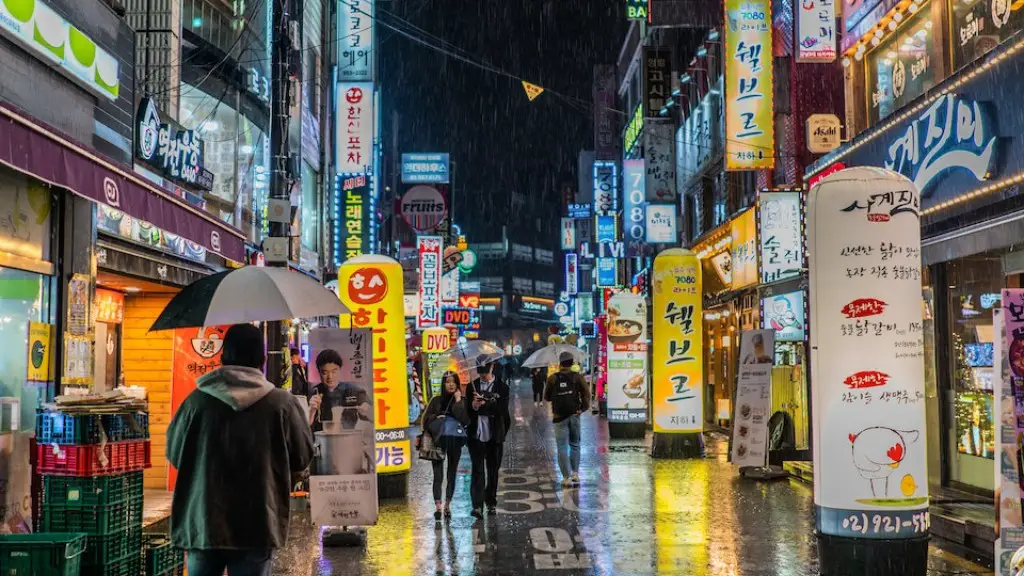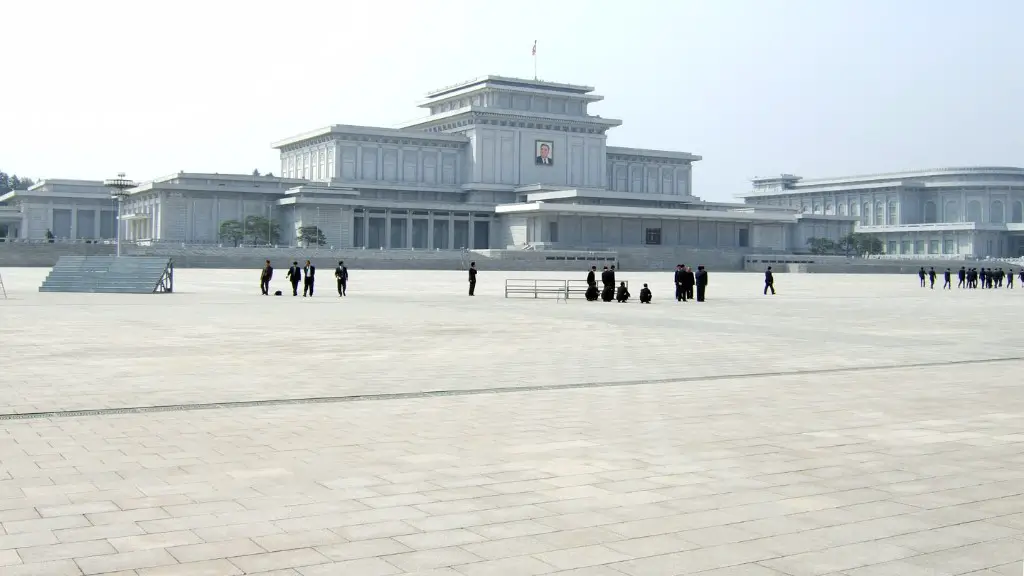Background of North Korea
North Korea is a mysterious and heavily isolated communist state. It is officially known as the Democratic People’s Republic of Korea and is close to China and Russia. It was established as a separate state after World War II in 1948. After a violent and bloody Korean War of 1950-1953, it remained divided between the Soviet-backed North Korea and the US-backed South Korea. The capital and the largest city of the country is Pyongyang, located right in the center of the northern part of the peninsula. North Korea is considered to be a totalitarian Stalinist dictatorship that is highly unpredictable and dangerous. The government there is alleged to be inhumane, controlling and oppressive. It has one of the most powerful armies on the planet and is known for its nuclear weapons program that threatens the security of many of its neighbors.
Who is in charge of North Korea?
Since the state of North Korea was established in 1948, it has been ruled by the Kim family as a single-party state. After the Korean War, the country was heavily militarized, with no freedom of press or speech. It was very clear who was in charge. Kim Il-sung, the first supreme leader of North Korea, was widely accepted as the top leader and the only one to provide decisions or policies. After his death in 1994, his son Kim Jong-il succeeded him in leading the country. Then in 2011, his grandson, Kim Jong-un, took over after his father’s death.
The Kim family is a cult of personality in North Korea. All three generations have been viewed by many North Koreans as “supreme leaders”. They are viewed as gods who are above all reproach and criticism. On the surface, the Kim family is perceived as the people in charge of North Korea. However, recent evidence and analysis suggest that there may not just be a single individual in charge of the secretive nation.
Other Key Players in North Korea
Though members of the Kim family have acted as the head of state of North Korea, they are not acting alone. The leadership of North Korea is composed of four main bodies: the Central Committee, the Politburo, the cabinet and the military.
The Central Committee of North Korea is the main decision-making body of the Workers’ Party of Korea. It is composed of the top officials in the party and all key decisions regarding the country are made by this body. The Central Committee has full control over all aspects of North Korean society and government.
The Politburo of the Central Committee, also known as the Presidium, is a group of top officials of the party who oversee the implementation of party directives and act as a decision-making body alongside the Central Committee.
The Cabinet is headed by a Prime Minister and is responsible for overseeing all the different government departments responsible for varying aspects of North Korean life. It also implements laws and regulations passed by the Central Committee.
The fourth and final part of the leadership of North Korea is the military. It is the most powerful and influential force in the country, and is currently led by the Minister of the People’s Armed Forces. It is perhaps the most important factor when it comes to decisions made in North Korea, as it holds the most power in North Korean society.
Analysis
From an outside perspective, it is easy to assume that the Kim family is the only one in charge of North Korea, as it has been led by three generations of the same family. However, from within the country it is clear that the power lies in the hands of the Central Committee, the Politburo, the cabinet and the military. These are the real driving forces behind the country, and any decisions made by the Kim family are only possible with the support of all of these groups.
For those living in North Korea, the power of the Kim family can be intimidating and oppressive. They are seen as gods who are above all criticism and reproach. Even if analysts tend to think that they are not in control of the country, they are still seen as powerful figures by the people of North Korea. This leads to the depressing reality of life in North Korea where fear of the Kim family is pervasive.
US Sanctions
One of the main tools used by the United States to put pressure on North Korea is sanctions. The US has imposed sanctions against the country since the Korean War in 1950 in an attempt to stem its development of nuclear weapons. The sanctions have been constantly renewed, and further sanctions were imposed in 2017. These are aimed at limiting the North Korean government’s ability to access capital and resources in order to fund its nuclear weapons program.
The US has also imposed sanctions on foreign countries and organizations that are found guilty of supplying North Korea with resources and funds. The sanctions have had some effect, raising the cost of doing business in North Korea and resulting in a decrease in international trade. However, the effects have been limited, as North Korea has been able to find alternative sources of income.
International Community’s Role
The international community has a significant role to play in the situation in North Korea. China, Japan and South Korea have all either imposed or voiced their support for sanctions against North Korea in order to try and contain the situation. The United Nations has also made multiple attempts at resolving the situation diplomatically, and negotiations have taken place.
Russia has been another key figure in the situation. In recent years, the country has taken steps to strengthen ties with North Korea, including providing aid and support. While Russia has spoken out against North Korea’s nuclear weapons program, it has also taken steps to increase economic cooperation with the country.
Public Perception of North Korea
Public opinion in the United States and in many other countries is mostly negative towards North Korea. It is an oppressive state that is known to be difficult to negotiate with and whose leadership is accused of human rights abuses. This makes it difficult for the US and other countries to establish diplomatic relations with North Korea, as the public opinion makes them reluctant to do so.
The media has also had an impact on public opinion on North Korea. The media often portrays the country in a negative light, highlighting the human rights abuses and the oppressive nature of the regime. This is seen as a way of creating awareness of the situation in North Korea and preventing further abuses.
International Relations
International relations with North Korea have been difficult, as the country is unwilling to cooperate with the outside world. Despite attempts by the United States and other countries to promote peace and dialogue, North Korea is often suspicious of these attempts, viewing them as threats. The North Korean government is also known for its unpredictable behavior, as it is often unwilling to take part in diplomatic negotiations. As a result, international relations with North Korea remain difficult and fragile.
In recent years, however, there have been promising steps towards peaceful resolutions to the situation in North Korea. In 2018, North Korean leader Kim Jong-un and South Korean leader Moon Jae-in held a historic summit, pledging to work together to achieve peace and cooperation. In 2019, Kim Jong-un and US President Donald J. Trump held a landmark summit in Singapore, which was seen as a major breakthrough in international relations.
Outlook
As the situation in North Korea remains volatile, there is a degree of uncertainty as to what the future holds for the country. It is clear that North Korea will continue to be an isolated state and its future depends on what decisions the Kim family and other powerful figures in the country make. The international community will also play an important role in determining the future of North Korea, as it has done in the past.
The United States, South Korea and other countries have been working hard to create diplomatic solutions to the situation in North Korea, and have had some success with talks and negotiations between the two Korean leaders. North Korean society is still oppressive and violent, but there is a chance for change as more countries become involved in the situation, and international pressure and sanctions continue to be applied.
Business Investment
Despite the barriers and challenges, there are a number of businesses and organizations that have invested and continue to invest in North Korea. This includes Chinese companies that are attracted to the cheap labor force and low taxes they can benefit from. There are also foreign tech and IT companies investing in the country, as they see potential in the educated population.
South Korean companies are another group of investors in North Korea. These companies are focused on restoring relations between the two countries and aim to strengthen economic ties between the two countries in order to create a more stable future. North Korea is seen by many as a potential market for investment and development, so many companies have invested there.
There have also been attempts to introduce new technologies and industries in North Korea on a limited scale. There is potential for a tech and digital economy in North Korea as more people gain access to the internet, and North Korea has expressed a keen interest in developing its information technology sector. However, due to the repressive nature of the state and the high cost of foreign investment, progress in this area has been slow.
Refugee Crisis
One of the most pressing issues in North Korea is the refugee crisis. Hundreds of thousands of North Koreans have fled their country due to persecution and repression. Many of these refugees have been able to make it to China and South Korea, where they have found a new home.
The international community has been working to help these refugees and has taken steps to aid them in their resettlement. South Korea has provided funding and economic aid as well as legal assistance and training programs. Meanwhile, the United Nations and other organizations have been providing food, shelter, and medical aid to refugees.
However, the refugee situation in North Korea remains dire and the international community is struggling to cope with the situation. It has been estimated that up to 400,000 North Korean refugees remain stranded in other countries, and are unable to return to their homes.
Conclusion
It is clear that the Kim family is not the only one in charge of North Korea. There are many other powerful figures in the country, such as the Central Committee, the Politburo, the Cabinet and the Military, who are equally important in making decisions regarding the country. The international community also has an important role to play in the situation in North Korea and has taken steps to aid and contain its nuclear weapons program. Despite the oppressive nature of the North Korean state, there are investments and attempts being made to improve the situation. However, the refugee crisis still poses a major challenge for the country that needs to be addressed.



